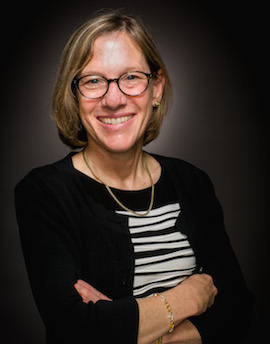 Liberal education aims to help both individuals and democratic society flourish as free people in the largest sense of the word. Our educational mission in the College of Arts & Sciences is to accomplish this within the context of a multi-ethnic, multi-racial population of students, faculty, and staff who are of both genders and varying sexual identities, including non-binary, some living with disabilities, who encompass both US citizens and non-citizens, individuals raised in economically struggling families, middle-income families, or economic privilege, in urban or rural environments, and who represent multiple religious or areligious and political identities. (Apologies if I have omitted an important axis of difference in this list!) This vibrant multiplicity of identity and differences creates both fabulous opportunities and perplexing challenges in fulfilling our mission.
Liberal education aims to help both individuals and democratic society flourish as free people in the largest sense of the word. Our educational mission in the College of Arts & Sciences is to accomplish this within the context of a multi-ethnic, multi-racial population of students, faculty, and staff who are of both genders and varying sexual identities, including non-binary, some living with disabilities, who encompass both US citizens and non-citizens, individuals raised in economically struggling families, middle-income families, or economic privilege, in urban or rural environments, and who represent multiple religious or areligious and political identities. (Apologies if I have omitted an important axis of difference in this list!) This vibrant multiplicity of identity and differences creates both fabulous opportunities and perplexing challenges in fulfilling our mission.
A multicultural, democratic society contains the promise of diversity to stimulate innovation and creativity, but also risks fracturing along tribal divisions, creating backlash to progressive but painful change, and ultimately unproductive and hurtful divisiveness. Diverse educational institutions likewise promise to provide opportunities for individuals from diverse backgrounds to exchange ideas, share stories and experiences, and create fulfilling, new ways of life. But they also risk alienating previously excluded minorities who feel they still do not belong, or creating groupthink that further isolates people from the productive and creative power of authentically encountering difference. In addition, many students come to college with insecurities and doubts from personal and familial origins that are not visible to their classmates and teachers.
How can educators address these issues and create learning environments in which students can do their best work and succeed? Let me be clear that the answer is not to shelter each other from difference. I have written previously about how we need to support free speech while being clear that we are not neutral about our values, and to encourage our students to engage in civic activism. Rather, the challenge is to empower our students to encounter difference with inner confidence, humility, and a shared sense of intellectual purpose.
The annual Advising Symposium last Friday addressed these issues, and included an inspiring keynote address given by Geoffrey Cohen, a social psychologist from Stanford University, who specializes in finding psychological interventions to improve student success. His speech gives us a framework for thinking about how to empower students to engage across difference, overcome feelings of alienation, and succeed in their studies. He provided what I think is an insightful formula for empowering students: structural opportunity + psychological intervention = success. The psychological “catalysts” of success that he and other educational researchers have found are trust, a feeling of belonging, a growth mindset, and a sense of self-affirmation. To help advisors and instructors to nurture these positive attributes, Cohen spoke first of the importance of the individual encounter with students, and the value of listening for clues about what may be holding them back. He presented research on the effectiveness of setting high standards while expressing belief that the student can meet them with hard work. He urged us to look empathically at the environment we create – does it send messages of exclusion, telling a student “you are not an insider”? If so, we should eliminate those messages. And he provided tools in the form of interventions that advisors or teachers can use with their students to help them feel that they belong, that they can reach a higher level of achievement, and that it is important to stay true to their core values.
As a psychologist, Cohen had less to say about how to create structural opportunity, but this is the other critical variable we can control in the formula for student success. In an earlier dean’s note, I discussed how financial aid plays an important role in making an excellent education possible for talented low-income students. We can also address structural opportunity through outreach and through our research on inequality and social justice, especially when we make our results known to a broader public and to government officials.
We need all our students to find success so that they can fulfill the goals of a liberal education. We want them to flourish in their personal lives, and to become confident civic participants and leaders. We want them to learn technical and critical thinking skills so that they can innovate and build a better, more sustaining, material world. As we work to make our College and University more diverse and inclusive, let us be mindful that our students are often struggling with some invisible weight. This can be true of any student who has faced a personal setback or who questions their self-worth, but is even more likely to be true of those who are minorities in the academy.